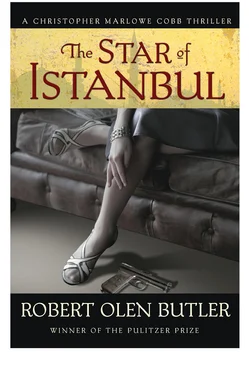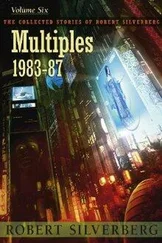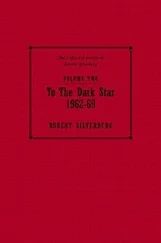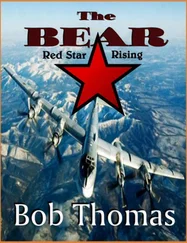My assignment was too vague: What’s he up to? My reporter’s instincts had been most famously employed in figuring out the next move of bands of armed men representing governments or organized factions aspiring to become governments. I knew what they were up to from the get-off: destroy the opposing bands of armed men and seize a physical objective on the way to seizing power. I had to slide back to my earlier reporting days to figure out what to do now. I had to think of Brauer as I would a dirty Chicago politician. But with the politician there were plenty of sources to go to. Enemies. Co-conspirators. Facilitators. Victims. And the überobjective of the man I was after was always money, which made certain lines of inquiry pretty clear. With Brauer, on this ship, there was no one to go to but him. And money was unlikely to be the coal in his engine.
So it would just be him and me. I figured my strategy was to treat him like a source for a larger story, somebody who knows something I need to know and doesn’t want to give it up, so I don’t let him know I want it. I strolled off in his direction.
But I didn’t go straight to him. I bellied up to the sideboard as if I expected it to be the bar and he was a couple of paces to my right and I looked around like I was puzzled, like where was the bartender, like where were the taps and the bottles, like what is this useless piece of furniture, anyway. “Huh,” I said aloud, and I turned around the way he was turned, and he wasn’t looking in my direction. It was like I wasn’t even there.
I checked out his drink a bit more closely. Certainly that was a good Scotch. He may have been an expert on Islam but I was thinking he wasn’t a convert. His tuxedo looked like it fit him pretty well and he was used to wearing it. Maybe a big cheese academician at King’s College who spent all day in his academic robes was used to monkeying up at night to drink with his fellow lecturers in a first-class British saloon where nobody ever raised his voice.
I figured I better stop disliking this guy so actively if I wanted to get something out of him.
“From across the room this sure looked like the bar — and a good one.” I said this aloud, keeping my eyes forward, as his were, but keeping my attention on him in my peripheral vision. I’d spoken in half a voice so that I could simply have been a guy avid for a drink talking mostly to myself.
I saw him turn his face in my direction. I waited a beat and then looked at him. He let our eyes meet. “Sorry to bother you,” I said, “but I was admiring your whiskey and thinking you got it here.”
He looked at his glass as if he were slightly surprised to find it in his hand. “No,” he said. “Someone will inquire shortly.”
He had a faint wisp of a British accent, like the smell of pipe smoke in a tweed jacket. “Good,” I said and I looked away from him. I thought about his cuffs, which I’d noticed were beginning to fray. Befitting an academic who’d been in London for a decade. I thought: What’s this guy doing in first class?
I looked his way and he was sipping his drink, still watching the first-class diners gathering in the room, ignoring me.
From above us, in the upper dining room, the ship’s salon orchestra struck up a waltz. The group sounded like about six pieces, with a violin and a piano leading the way. They were playing Archibald Joyce’s “Songe d’Automne,” a lovely, wistful thing made rather sad by its tune being in a minor key. After the first few bars, Brauer’s face lifted and turned — ever so slightly — in the direction of the sound, his eyes moving very briefly in that direction and then returning at once to the dining room before him. But his face remained slightly lifted to the tune.
He seemed utterly oblivious of me, so I watched him closely, waiting for him to show his response to the music he was clearly aware of, seeing if, by his nostalgia, perhaps Trask was wrong to be vitally suspicious of our Arabic-speaking spy’s American visit, seeing if maybe it was about love or family. But nothing changed in him, not a wrinkle in the brow, not a minute dip of his whiskey hand, not the slightest pause of his eyes in their ongoing desultory tracking of the passing swells.
But then he turned his face to me, slowly, his eyes going straight to mine. At some point he’d begun watching me in his periphery, as I was watching him.
“Sad little waltz,” I said, lifting my chin toward the upper dining room.
He did not answer for a moment but kept his eyes fixed on me. They were as black and inanimate as any lump of coal flying at that moment into the ship’s boilers. I did not flinch. I kept my own eyes unwaveringly on his, so as to suggest that my staring at him was simply to wait for — even to prompt — his attention.
After a long moment of this, he finally responded, picking up on the waltz of it, not the sadness: “I don’t dance,” he said.
“I wasn’t asking you to,” I said, not sarcastically, just drily, figuring he was evidently going to resist any conversation anyway and perhaps my showing a pipe-smoke wisp of aggressive irritation would suggest I’d been just a guy wanting to chat.
He surprised me. He laughed softly at this. As if he appreciated that I’d expressed my irritation with him. “Good,” he said.
He looked back to the other diners. But not to dismiss me. Almost at once he said, “They all seemed to know the waltz meant to sit.”
So he was indeed new to first class.
“Too bad,” I said. “I didn’t get my whiskey.”
He took the card from his pocket that assigned him a table. He looked off to the left, beyond the nearest Corinthian column. “You nearby?” I asked.
He nodded toward the forward portside corner of the dining room.
Since he seemed determined to say as little as possible, we had an awkward moment as he clearly wanted to move off in that direction and I had him feeling buttonholed. I saw the impulse of his body and he was about to excuse himself in a way that would make it hard for me to stick with him, so I smoothed the way for both of us before he could speak.
“Time to be seated,” I said and I took a step forward. We moved off together into the portside main aisle through the dining room.
Brauer said, “And where’s your place for dinner?” Was he accepting my acquaintance? Or was this a low-key challenge of my walking along with him? He was hard to read.
“I’m at the captain’s table tonight.” I said this without hesitation — no feigned humility about it — but I did say it offhandedly. As if I considered it a trifle.
Still, I found myself suddenly a step ahead of Brauer. I stopped and turned back to him.
The announcement had made him pull up, and now he’d fully stopped. “So you are a man of acclaim?” he said.
I offered my hand. “My name is Christopher Cobb.”
There was no flicker of recognition in his face. But he did take my hand and shake it. He surprised me with a very solid grip.
“I’m Dr. Walter Brauer,” he said.
“I write for a newspaper,” I said.
“Ah,” he said, letting go of my hand. “Newspapers.” The word tasted bad in his mouth, a rancid morsel of food he wanted to spit out but couldn’t in public. But this I discerned only in his tone of voice, not his face. He was showing nothing outwardly.
I wished I could simply walk away from this cuff-frayed egghead who scorned popular reading tastes. I couldn’t. “I’m strictly a war correspondent,” I said, thinking this would mitigate things.
It seemed to.
“I see,” he said, and his face did change ever so slightly, with a certain gravity coming over him.
He was an arrogant ass. Fine. I had a little something on him anyway. Doctor Brauer indeed. “And you’re a man of medicine,” I said. “I so admire that.”
Читать дальше












